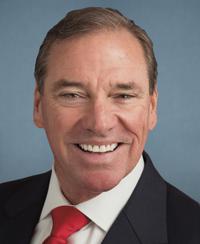0
Red Snapper Act of 2025
2/12/2025, 10:53 AM
Summary of Bill HR 470
The purpose of this bill is to ensure that any decisions regarding area or bottom closures in the South Atlantic are based on the most up-to-date and accurate information available. By waiting for the completion of the Great Red Snapper Count study and incorporating its findings into the stock assessment, policymakers can make more informed decisions that will benefit both the fishery and the environment.
This legislation is important for the sustainable management of the Snapper-Grouper Fishery in the South Atlantic region. By delaying any new rules or amendments until the completion of the study, Congress is taking a proactive approach to ensure the long-term health and viability of the fishery. It demonstrates a commitment to evidence-based decision-making and responsible stewardship of our natural resources. Overall, Bill 119 hr 470 represents a thoughtful and non-partisan effort to protect the South Atlantic fishery and promote sustainable practices. It highlights the importance of scientific research and data-driven policymaking in the management of our nation's fisheries.
Congressional Summary of HR 470
Red Snapper Act of 2025
This bill prohibits the National Oceanic and Atmospheric Administration (NOAA) from restricting certain fishing activities in the South Atlantic until data from the South Atlantic Great Red Snapper Count study is integrated into the next South Atlantic red snapper Southeast Data, Assessment, and Review (SEDAR) stock assessment.
The bill provides that NOAA may not issue an interim rule, final rule, or Secretarial Amendment establishing an area closure or a bottom fishing closure for specified species until (1) the study is complete; and (2) the study data is integrated into the first South Atlantic red snapper SEDAR stock assessment that is carried out after the bill's enactment. The limitation applies to fishing for species managed under the Fishery Management Plan for the Snapper-Grouper Fishery of the South Atlantic Region, including red snapper, grouper, and porgy.
(Closures generally restrict recreational and commercial fishing to prevent overfishing and for other conservation purposes.)
Current Status of Bill HR 470
Bipartisan Support of Bill HR 470
Total Number of Sponsors
5Democrat Sponsors
0Republican Sponsors
5Unaffiliated Sponsors
0Total Number of Cosponsors
41Democrat Cosponsors
3Republican Cosponsors
38Unaffiliated Cosponsors
0Policy Area and Potential Impact of Bill HR 470
Primary Policy Focus
Comments

Aileen Chu
10 months ago
I totally agree with this bill about not closing areas in the South Atlantic for fish until the study is done. It's important to have all the data before making decisions that could affect fishermen like me. It's just common sense to wait for the study to be complete before making any changes.





